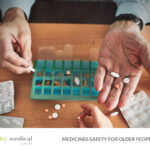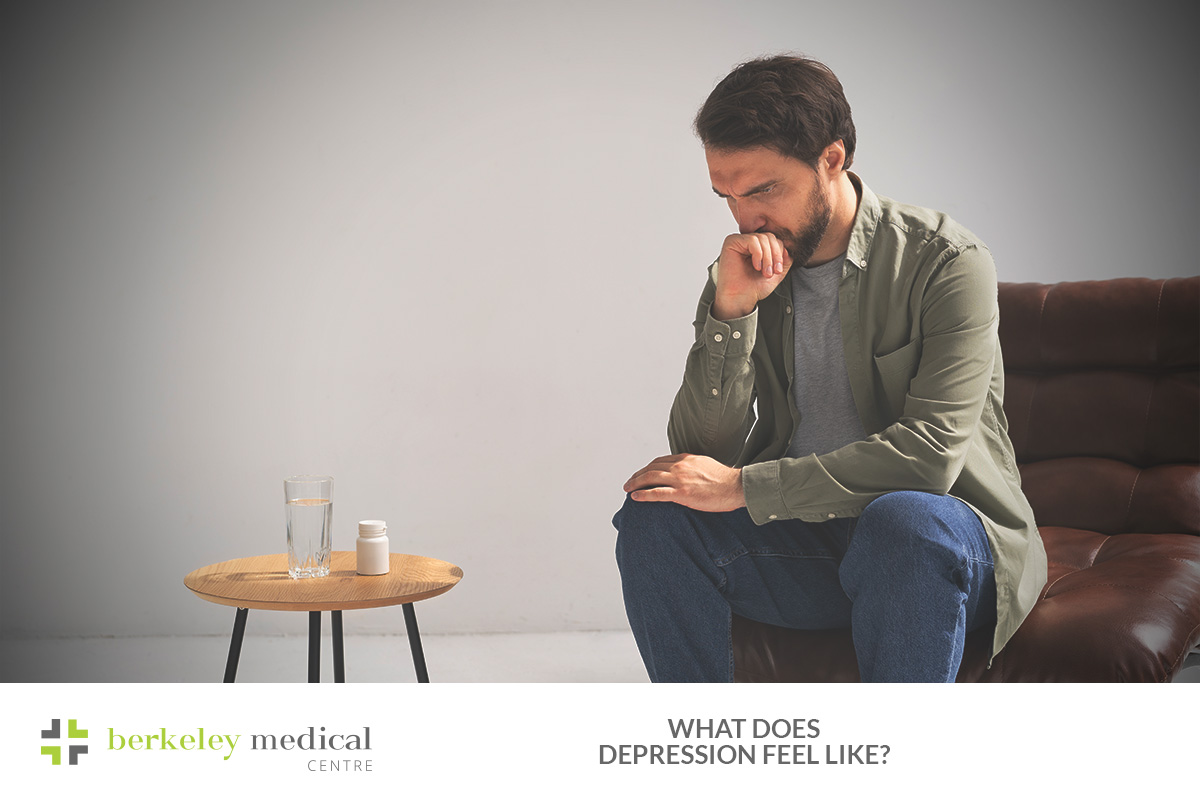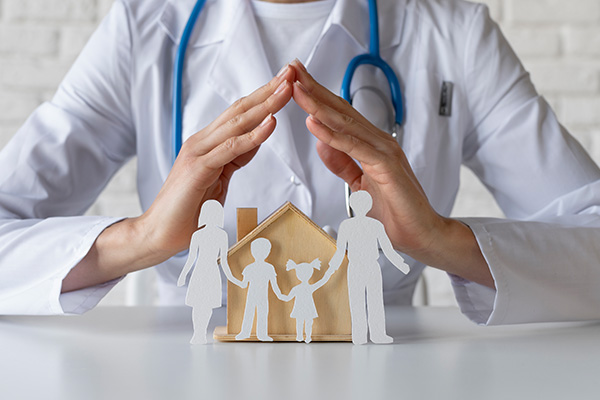Depression is a serious and common mental health condition that affects how people think, feel and function in everyday life. While it is often associated with sadness, depression goes far beyond feeling down temporarily it can impact emotional wellbeing, physical health and behaviour in ways that interfere with relationships, work and daily activities.
This article explores what depression feels like, how it can appear in different aspects of life and why early recognition of symptoms is vital.
Why It’s Important to Understand Depression
Many people experience low moods or stress, but depression is different. It is a persistent condition that can last weeks, months or longer. Without support, it may worsen over time.
Understanding the symptoms of depression including the emotional, cognitive, physical and behavioural signs helps individuals recognise the condition in themselves or others. It also reduces stigma and encourages timely help-seeking.
What Are the Symptoms of Depression?
Depression often develops gradually, which can make it harder to recognise. It affects everyone differently, but most people experience a combination of emotional distress, physical fatigue and changes in thinking or behaviour. These symptoms usually persist for two weeks or more and significantly impact daily life.
Let’s explore the key symptom categories more closely.
Emotional and Cognitive Symptoms
Depression can feel like an invisible weight that affects both mood and thought patterns. Emotionally, people may feel:
- Persistently sad, flat or empty
- Hopeless or helpless about the future
- Unmotivated or unable to enjoy activities
- Overwhelmed by feelings of guilt or worthlessness
- Emotionally disconnected, even around loved ones
Cognitive symptoms are also common and may include:
- Difficulty concentrating or focusing
- Forgetfulness or mental “fog”
- Negative self-talk and low self-esteem
- Trouble making decisions
- Repetitive thoughts of failure or being a burden
These internal experiences can leave individuals feeling isolated, misunderstood or emotionally exhausted.
Physical Symptoms of Depression
Depression frequently presents with physical symptoms, which can be just as disruptive as the emotional effects. People may experience:
- Chronic fatigue and low energy, even after rest
- Changes in sleep patterns, including insomnia or oversleeping
- Fluctuations in appetite, leading to weight loss or gain
- Frequent headaches, stomach issues or muscle pain
- Slowed speech, movement or reaction time
- Restlessness or physical agitation
These symptoms often prompt individuals to visit a GP or health provider before they realise they may be linked to depression.
Behavioural Changes
As depression progresses, it can influence how people behave in their personal and professional lives. Behavioural signs often include:
- Withdrawal from social events or avoiding contact with others
- Reduced interest in hobbies, work or daily routines
- Difficulty completing household or work-related tasks
- Neglect of personal hygiene and grooming
- Increased reliance on substances like alcohol for relief
- Missing appointments or failing to meet responsibilities
These behavioural changes may seem subtle at first but can escalate over time. Others may mistakenly interpret them as laziness or disinterest, when in reality, they are symptoms of an internal struggle.
How Depression Impacts Daily Life
Depression affects people in practical, day-to-day ways. Getting out of bed, preparing meals, commuting to work or maintaining relationships may begin to feel like major challenges. Over time, life may feel like it has lost colour, joy or purpose.
Some individuals continue to appear “functional” attending work, caring for children or socialising while privately battling symptoms. This is sometimes referred to as high-functioning depression and it can delay help-seeking because symptoms are less visible to others.
Common ways depression interferes with daily life include:
- Skipping meals or sleep due to lack of motivation
- Avoiding tasks that once felt manageable
- Struggling to communicate or express emotions
- Feeling numb or emotionally disconnected
- Becoming easily irritated or emotionally reactive
Without proper support, these impacts can lead to further health complications, relationship breakdowns and long-term mental health issues.
When to Speak to a GP
If you have noticed these symptoms in yourself or someone close to you for more than two weeks especially if they affect work, relationships or wellbeing it is time to speak to a GP.
Early signs of depression are easier to treat and a GP can:
- Assess emotional and physical symptoms
- Conduct a mental health screening
- Prepare a Mental Health Treatment Plan (MHTP)
- Refer to psychologists or counsellors for ongoing support
- Monitor progress over time and adjust care as needed
There’s no need to wait for symptoms to become severe. Seeking support early can make a significant difference in recovery and quality of life.
Final Thoughts
Depression does not always look like sadness. It can feel like exhaustion, emptiness, numbness or even anger. It affects how people think, behave and interact with others often without visible signs.
By understanding what depression feels like, individuals can recognise it in themselves or loved ones and seek help sooner. Whether it appears gradually or suddenly, depression is a treatable condition that deserves attention, care and professional support. At Berkeley Medical Centre, we provide confidential, compassionate care for patients experiencing symptoms of depression. Our GPs can help you understand what’s happening and connect you with the support services you need. You are not alone and help is always available.







